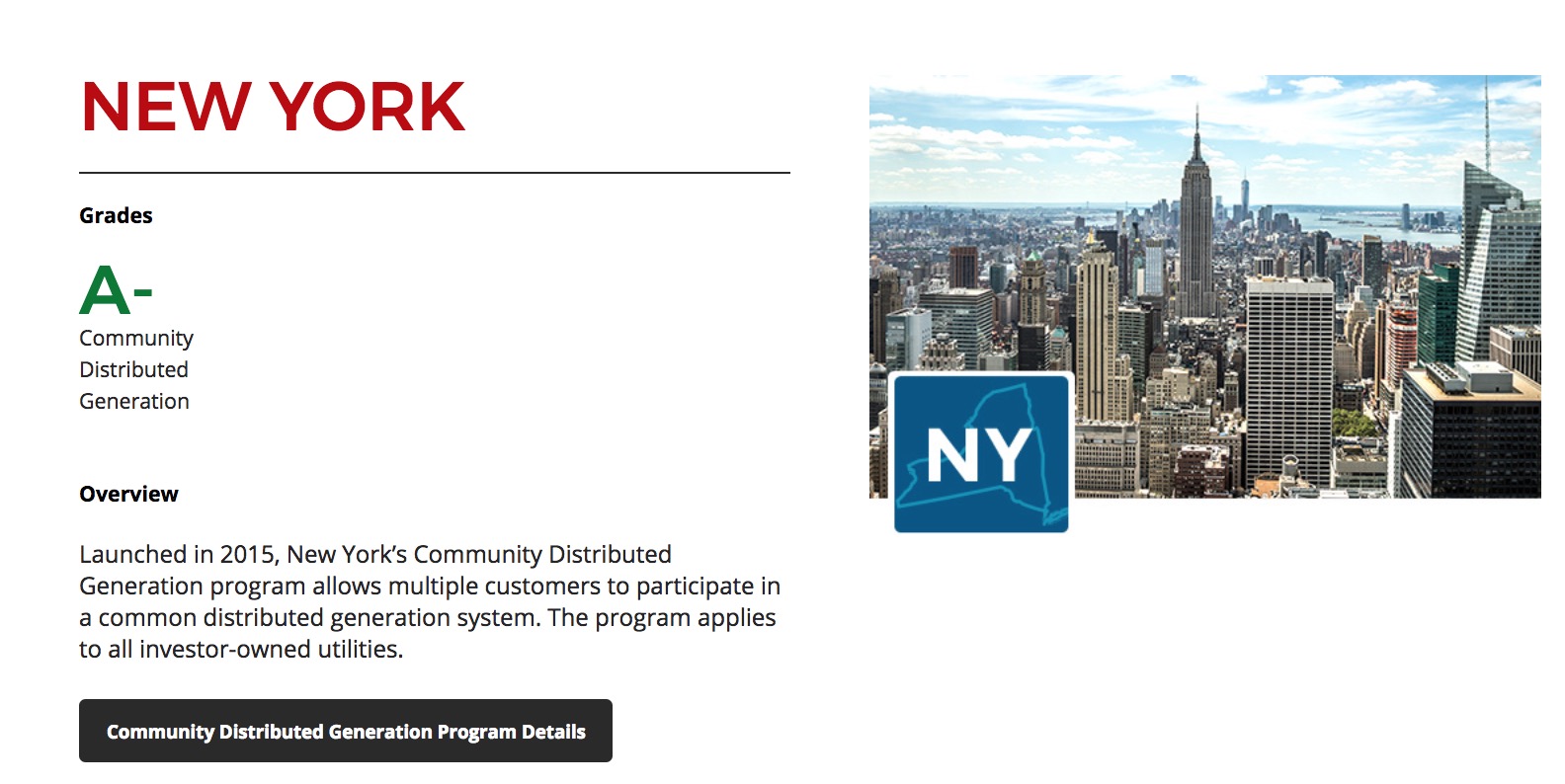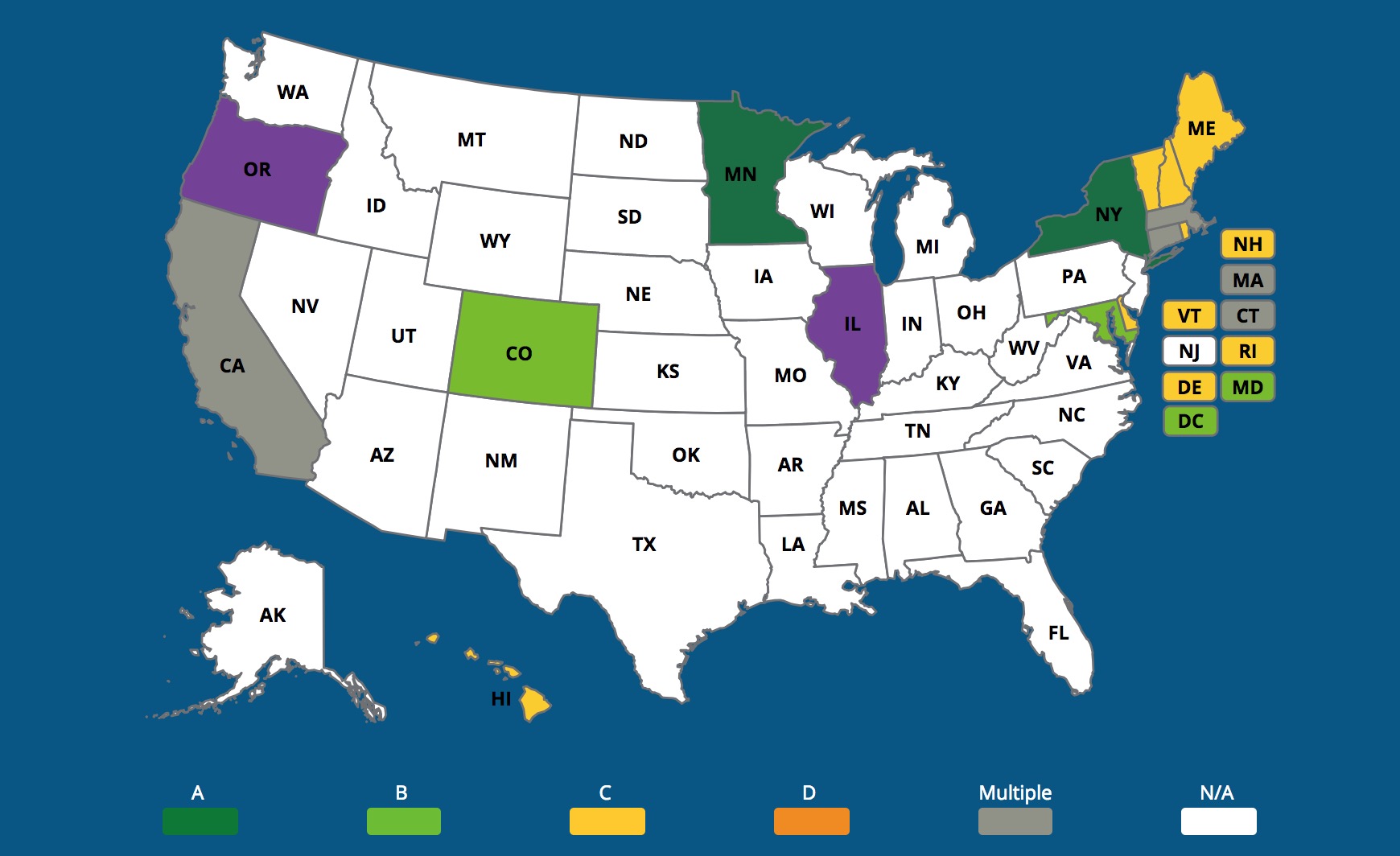 IREC, the Interstate Renewable Energy Council, is offering an interactive scorecard evaluating the strengths and weaknesses of shared renewable energy programs around the United States. The scorecard grades each state using scoring criteria based on their own published best practices, along with other parameters added by local and national experts.
IREC, the Interstate Renewable Energy Council, is offering an interactive scorecard evaluating the strengths and weaknesses of shared renewable energy programs around the United States. The scorecard grades each state using scoring criteria based on their own published best practices, along with other parameters added by local and national experts.
Shared renewables programs are defined as “programs that enable multiple customers to share the economic benefits of one renewable energy system via their individual utility bills.” When these programs are in place, participants purchase an interest in generation from a common renewable energy system, and directly receive the benefits of their participation on their utility bills. Some, although not all, shared renewables programs rely on virtual net metering (VNM) to allocate bill credits among participating customers; others rely on a separate bill credit allocation mechanism. View IREC’s “Definitions” page for more details.
According to the report, key takeaways include:
- Two states received A grades (12%)—Minnesota and New York. These states have incorporated the majority of shared renewables best practices identified by IREC.
- Five states received B grades (29%)—California (Virtual Net Metering), Colorado, Washington, D.C., Massachusetts (Community Shared Solar/Virtual Net Metering) and Maryland. Although these states have some room for improvement, their programs reflect many best practices and offer solid foundations for shared renewable energy development.
- Eight states received C grades (47%)—Connecticut (Virtual Net Metering), Delaware, Hawaii, Massachusetts (Neighborhood Net Metering), Maine, New Hampshire, Rhode Island and Vermont. These programs lack many of the key components necessary for successful market development.
- Two state received D grades (12%)—California (Enhanced Community Renewables component of the Green Tariff Shared Renewables program) and Connecticut (Shared Clean Energy Facility Pilot Program). These programs do not comport with many of the IREC-identified best practices which could impede program effectiveness and market development
States that have not passed shared renewables legislation, or recently passed legislation before the report’s cutoff time, are not included in the 2018 scorecard.
Click here to visit the report’s interactive website.
…
About IREC:
https://irecusa.org/
IREC is a 501(c)(3) non-partisan, non-profit organization working nationally to increase consumer access to sustainable energy and energy efficiency through independent fact-based policy leadership, quality workforce development and consumer empowerment.
Tags: Interstate Renewable Energy Council, IREC, Renewable Energy Scorecard, Renewables, Shared Renewables Scorecard







 RSS Feed
RSS Feed